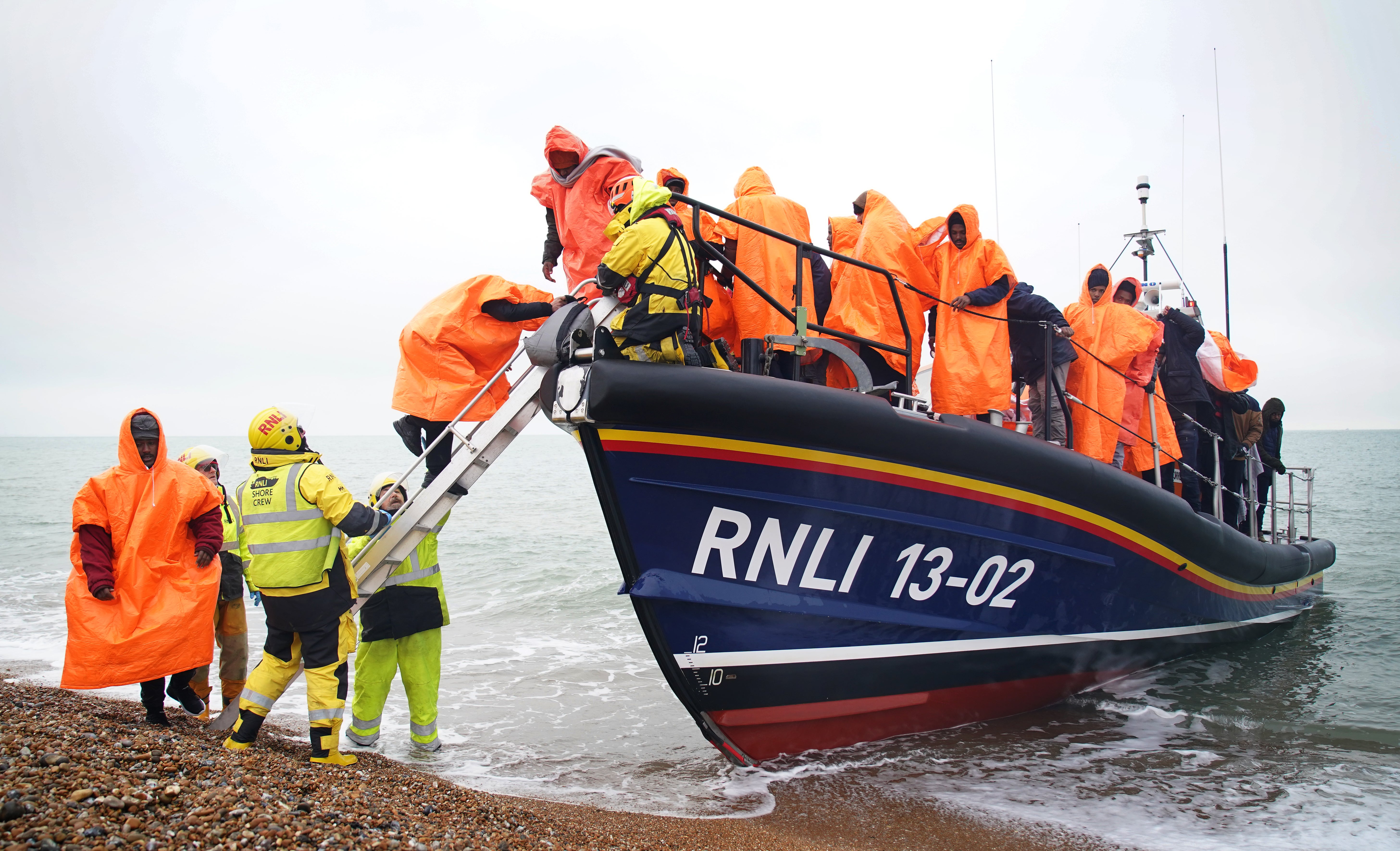The government must stop dragging its feet over a new anti-slavery watchdog
Letters to the editor: our readers share their views. Please send your letters to letters@independent.co.uk

It has now been 12 months since the UK has had an independent anti-slavery commissioner, a watchdog role to “encourage good practice in the prevention, detection, investigation, and prosecution of modern slavery offenses and the identification of victims.”
As a group of anti-slavery and human rights organisations, we are seriously concerned that the appointment of a new Commissioner has been left to drift for so long.
This is particularly worrying in the current climate, where changes to legislation are likely to make the identification of modern slavery victims more difficult, and could prevent them from getting the right support.
As we pass the milestone of one year without a Commissioner, we are calling on the government to urgently appoint someone to this post.
The new watchdog needs to be truly independent so they can work, unhindered by political interference, for the good of modern slavery victims and survivors.
These people are some of the most vulnerable in society and will have experienced all manner of horrors, from forced labour to being trafficked for sex.
They deserve a dedicated public servant who understands the reality of modern slavery and can act as their champion. Having someone in this role is not only a legal requirement – it is also the mark of a civilised country.
On behalf of:
Julia de Boinville – Co-Founder, The Anti-Slavery Collective, Major Kathy Betteridge – Director Anti-Trafficking & Modern Slavery, The Salvation Army, Emily Chalke –Co-Director, Ella’s, Jamie Fyleman – Development Director, Justice and Care, Joy M Gillespie – CEO, SOHTIS, Jared Hodgson – CEO, Hope at Home, Tim Nelson – CEO, Hope for Justice, Ed Newton – CEO, Causeway, Caroline O’Connor–CEO, Migrant Help, Tom Stancliffe – CEO, TRIBE Freedom Foundation and Andrew Wallis OBE – CEO, Unseen
Failure is par for the course for the Tories
Lack of ability, aptitude for the job, and honesty are prevalent in the Tory party so the thought of Lord David Frost becoming a Conservative MP is just about right.
Lord Frost’s lamentable handling of Brexit negotiations has been well documented and his recent admission that it was a disaster is proof that he was out of his depth. To be awarded one of the most prestigious positions in Britain, that of Lord, for abject failure is par the course for the Tories.
If he were to be offered a parliamentary opportunity it would further lower the standing of MPs and the Tory party, if that were possible. He has caused an unmitigated disaster in Northern Ireland, and Britain in general, and it is scandalous that he should still be in the public view.
Keith Poole
Basingstoke
Labour’s approach will exercise our democracy
I read Adam Forrest’s article with interest and personally think this is a good idea for many reasons. I don’t see why EU citizens shouldn’t have a legitimate stake in our general elections.
They are contributing to our national finances, making their homes here, and embracing our cultures, without losing sight of their own individual ethnicity. As to enfranchising 16- and 17-year-olds who are often more politically savvy than some older demographics, this would be proactive and reap rewards. Getting into the habit of voting at a young age, instills a lifetime habit.
So many people state disinterestedly “I don’t do politics” but I am afraid they do you, with so many untold ramifications. Other countries have long queues to often oust a corrupt administration, but our country can be negligent in exercising their democratic and hard-won rights. So yes, getting young people on board and allowing EU citizens the right to vote can only be proactive, productive, and politically persuasive to large swathes of the public, who rightly feel disenfranchised, at the present time, in a country where the government would like to cherry-pick their voter base.
Judith A Daniels
Norfolk
Where does all the money go?
In Scotland, everyone who earns more than the minimum wage a year pays more tax than they would under the prevailing conditions in the rest of the UK.
So why are services in Scotland being mercilessly squeezed? Where is the money going? Some of it is spent on the extra ministers Humza Yousaf has hired, and their offices and paraphernalia, their special advisers, and their travel.
All at a time when, we are told, food bank use in Scotland has increased exponentially. We know that Nicola Sturgeon’s regime threw money at new schemes that did not come to fruition and at old ones that continued to limp along under their well-paid chief executives. Then there is the raft of client organisations, including those in the arts and the third sector, that receive money to keep them onside with government initiatives, which means supporting secession.
But that still leaves the question: where does all the money go?
Jill Stephenson
Edinburgh
Our supermarkets can’t beat the laws of supply and demand
Those urging the PM to cut fruit and veg prices need to open their eyes to the reality of where our food comes from before blurting out such vacuous piffle. We are an island and too many people are competing for the land upon which we grow our food.
Those calling for more housing need farmland to build on. Those demanding upgraded road infrastructure upgrades, bypasses, and HS2 rail links require farmland to build on. Anyone bleating about the need for more renewable energy needs farmland to grow biofuel or build solar farms.
Every year thousands more hectares of land disappear under tarmac, concrete, and patios while the number of people requiring food grows. Who can square that circle?
For the avoidance of doubt, there is no way food or any other commodity can beat the laws of supply and demand.
Steve Mackinder
Denver






Join our commenting forum
Join thought-provoking conversations, follow other Independent readers and see their replies
Comments